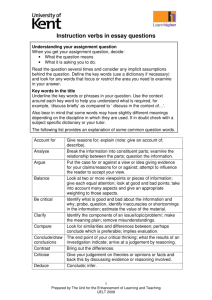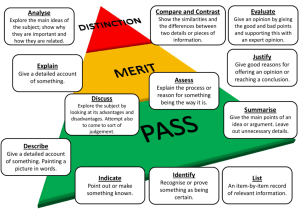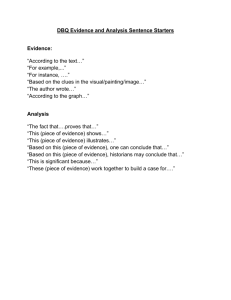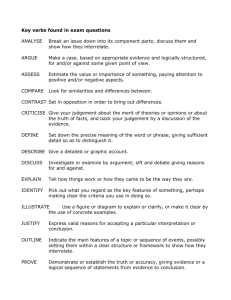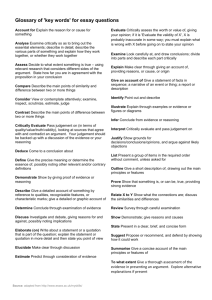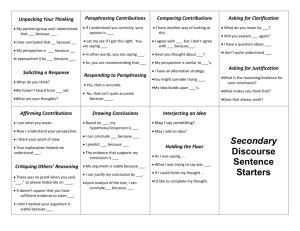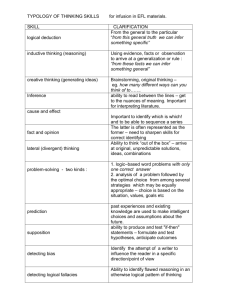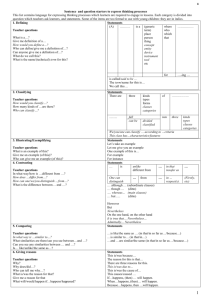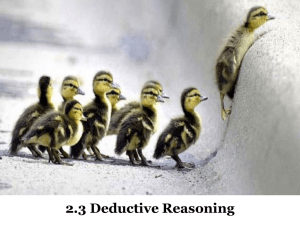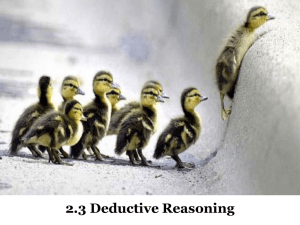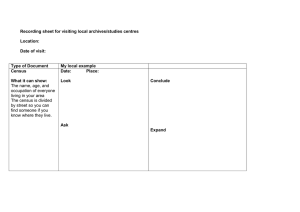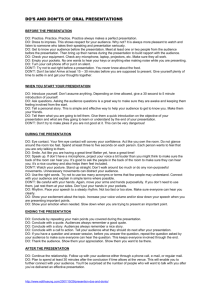Instruction verbs in essay questions Student Learning
advertisement
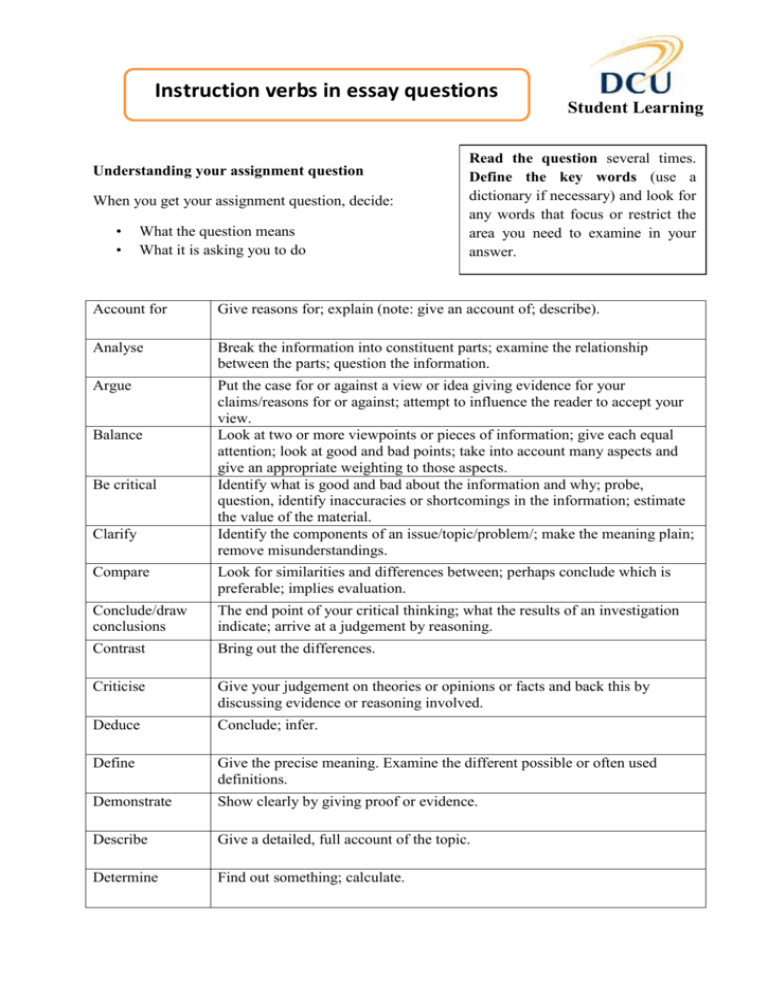
Instruction verbs in essay questions Understanding your assignment question When you get your assignment question, decide: • • What the question means What it is asking you to do Student Learning Read the question several times. Define the key words (use a dictionary if necessary) and look for any words that focus or restrict the area you need to examine in your answer. Account for Give reasons for; explain (note: give an account of; describe). Analyse Break the information into constituent parts; examine the relationship between the parts; question the information. Argue Put the case for or against a view or idea giving evidence for your claims/reasons for or against; attempt to influence the reader to accept your view. Look at two or more viewpoints or pieces of information; give each equal attention; look at good and bad points; take into account many aspects and give an appropriate weighting to those aspects. Identify what is good and bad about the information and why; probe, question, identify inaccuracies or shortcomings in the information; estimate the value of the material. Identify the components of an issue/topic/problem/; make the meaning plain; remove misunderstandings. Balance Be critical Clarify Compare Look for similarities and differences between; perhaps conclude which is preferable; implies evaluation. Conclude/draw conclusions The end point of your critical thinking; what the results of an investigation indicate; arrive at a judgement by reasoning. Contrast Bring out the differences. Criticise Give your judgement on theories or opinions or facts and back this by discussing evidence or reasoning involved. Deduce Conclude; infer. Define Give the precise meaning. Examine the different possible or often used definitions. Demonstrate Show clearly by giving proof or evidence. Describe Give a detailed, full account of the topic. Determine Find out something; calculate. Develop an opinion/ a view Decide what you think (based on an argument or evidence). Discuss Investigate or examine by argument; debate; give reason for and against; examine the implications of the topic. Elucidate Explain and make clear. Estimate Calculate; judge; predict. Evaluate/weigh up Appraise the worth of something in the light of its truth or usefulness; assess and explain. Examine Look at carefully; consider. Explain Make plain and clear; give reasons for. Give evidence Provide evidence from your own work or that of others which could be checked by a third party to prove/ justify what you say. Identify Point out and describe. Identify trends Identify patterns/changes/ movements in certain directions (e.g. over time or across topics/ subjects). Illustrate Explain, clarify, make clear by the use of concrete examples. Infer Conclude something from facts or reasoning. Interpret Expound the meaning; make clear and explicit, giving your own judgement. Justify Show adequate grounds for decisions, a particular view or conclusions and answer main objections likely to be made to them. Outline Give a short description of the main points; give the main features or general principles; emphasise the structure, leaving out minor details. Prove Show that something is true or certain; provide strong evidence (and examples) for. Review Make a survey examining the subject carefully; similar to summarise and evaluate. State Present in a brief, clear form. Summarise Give a concise account of the chief points of a matter, removing unnecessary detail. Synthesise Bring elements together to make a complex whole, draw together or integrate issues (e.g. theories or models can be created by synthesising a number of elements). Follow the development of topic from its origin. Trace
